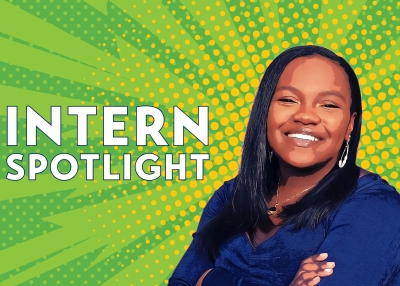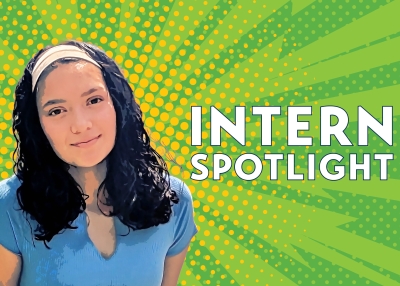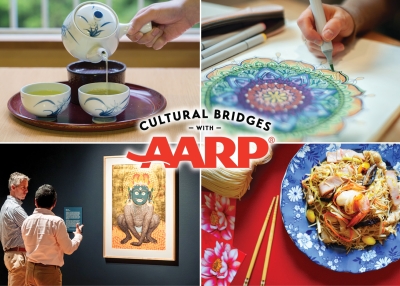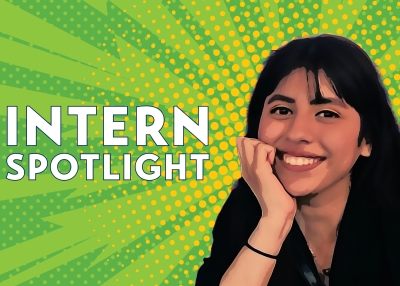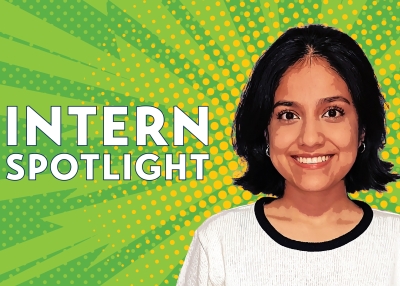Research Scientists in Hong Kong, Houston Examine COVID-19 Vaccine Development, Timeline
Asia Society at Home
Learn More
HOUSTON, May 29, 2020 — Asia Society Texas Center (ASTC), in partnership with Asia Society Hong Kong, presented a program on the global efforts to develop vaccines and treatments for the novel coronavirus. Dr. Honglin Chen of the University of Hong Kong (HKU) and Dr. John P. Cooke of Houston Methodist Research Institute in Houston, Texas, spoke in conversation with Edward R. Allen, co-founder and senior partner of Eagle Global Advisors and ASTC chair, about the ongoing work in their respective labs to produce a vaccine as well as their hopes for other treatments.
Two different approaches to developing a vaccine
Dr. Chen spoke about the work being done by his team at the State Key Laboratory of Emerging Infectious Diseases at HKU. The lab was established in 2005 after the SARS outbreak to investigate emerging infections, and is now developing a vaccine for COVID-19 that is based on the “live attenuated influenza vaccine platform” their previous flu-based research helped create. In other words, he explained, their COVID-19 vaccine would use a weakened form of the influenza virus and put into it a piece of the coronavirus antigen (proteins created by the virus) that will create an immune response. When confronted with the real SARS-CoV-2 virus (the novel coronavirus that causes the disease COVID-19), the body would then be prepared to mount an immune response.
In Houston, at the U.S.’s largest medical center, Dr. Cooke and the RNA Therapeutics Program at the Houston Methodist Research Institute are taking a different approach to a COVID-19 vaccine by using RNA. Dr. Cooke described RNA as “biological software which encodes the protein of the virus.” He explained that in this case scientists would use a small portion of the coronavirus RNA – which encodes the spike protein of the SARS-CoV-2 virus – and inject it into the body as a vaccine. The body’s cells would then use the genetic information to make the antigens, which the body would recognize as foreign, generating an immune response. He acknowledged that RNA-based vaccines had not yet resulted in a commercially viable vaccine, but noted that the methodology is very new compared to traditional vaccine development.
Additional vaccines being developed
Both Dr. Chen and Dr. Cooke praised the collaboration among researchers around the world in sharing data and information with the shared goal of creating a vaccine. Dr. Cooke in particular noted that, despite any larger political tensions, cooperation and communication between individual scientists of every country have continued. Dr. Chen noted that his team has been partnering with Mount Sinai Hospital in New York to share HKU animal models.
Dr. Cooke reported that 145 vaccines are now under investigation around the world, which he said was good given that only 1 out of 100 vaccine candidates on average make it through the rigorous trials to attain FDA approval. Some vaccine candidates have produced promising data in their early clinical trials, he added, such as those by pharmaceutical companies Moderna and Inovio, but he cautioned that it is too early to tell. In China, Dr. Chen noted that the Ministry of Science and Technology has approved clinical trials for a number of vaccine candidates as well.
Dr. Cooke addressed the concern about the speed at which the COVID-19 vaccines are being developed, noting that although the FDA is accelerating the regulatory process, it remains rigorous about clinical trials to ensure vaccines are both safe and effective. He also explained that the vaccines are being designed against parts of the virus that are less likely to mutate, such as the spike protein, as those elements are critical for the coronavirus to get into our cells.
Challenges of vaccine development
Dr. Chen described some of the challenges that researchers may encounter in the process of developing a vaccine. An ideal vaccine achieves two goals: (1) neutralizing the virus by creating antibodies and (2) producing T-cells that will get rid of the cells that are infected. This would both protect the recipient from contracting the disease as well as prevent the spread of the disease. Dr. Chen said it is unknown whether any of the current vaccine candidates at various stages of development will achieve both goals. Because the virus is so new, he said, multiple types of vaccines and technologies are necessary to determine which vaccine would be safe as well as effective.
Another challenge that researchers may face, Dr. Chen said, is in evaluating the efficacy of the vaccine in the general population (Phase III of clinical trials) because the number of COVID-19 cases is dropping in China as well as Europe, diminishing the population on which to run those trials. Phase III trials are especially important to determine if certain populations — for instance, the elderly — are particularly susceptible, or if the vaccine will have adverse effects in combination with other drugs.
Dr. Cooke added that while there had been conversations about a “human challenge trial” (deliberately infecting people with the virus), the proposal raises ethical concerns due to the lack of proven treatment for COVID-19. He added that another risk is that researchers do not fully understand the virus or the way it invades blood vessels and causes inflammation, leading to strokes or heart attacks.
Other treatments for the coronavirus
In addition to vaccines, Dr. Cooke noted that researchers are investigating treatments for COVID-19. Houston Methodist Hospital in Houston was the first in the country to try convalescent plasma therapy, he said. That is when blood is taken from patients who have recovered from COVID-19 to isolate the plasma containing the antibodies, which is then infused in people who are infected. Dr. Cooke noted that the method has been completed in 75 patients and looks promising.
He also highlighted remdesivir, an antiviral agent shown to reduce the hospitalization stay of COVID-19 patients. Some anti-inflammatory drugs can help with cytokine storms, where the immune response cases the body to attack its own cells instead of the pathogen, he said. Dr. Chen noted that any treatment for COVID-19 seeks to both suppress viral replication and prevent cytokine storms, essentially bringing the patients’ immune system back to its normal level.
The future of the vaccine
Dr. Cooke said he believed that the most realistic timeline for a vaccine to be available to the public is in 2021. He also indicated it is likely that multiple vaccines would be developed. Dr. Chen added that the different vaccines might be used for different age groups, depending on which are more effective. He cautioned, however, that widespread vaccine distribution may take longer than Dr. Cooke suggested due to the need to manufacture so many doses so rapidly and the need for sufficient equipment to administer them.
Both Dr. Chen and Dr. Cooke agreed on the importance of making the eventual vaccine available globally to all who need it. Dr. Cooke said that while he understood the concerns of for-profit companies such as Moderna and Inovio, he hoped that through philanthropy, government assistance, and World Health Organization programs the vaccine will be made available worldwide. After all, “disease doesn’t have country borders,” said Dr. Chen.
Business and Policy programs are endowed by Huffington Foundation. We give special thanks to Bank of America, Muffet Blake, Anne and Albert Chao, ConocoPhillips, ExxonMobil, Nancy Pollok Guinee, United Airlines, and Wells Fargo, Presenting Sponsors of Business and Policy programs; Nancy C. Allen, Chinhui Juhn and Eddie Allen, and Leslie and Brad Bucher, Presenting Sponsors of Exhibitions; Dr. Ellen R. Gritz and Milton D. Rosenau and Wells Fargo, Presenting Sponsors of Performing Arts and Culture; and Mitsubishi Corporation (Americas), Presenting Sponsor of the Japan Series. General support of programs and exhibitions is provided by The Brown Foundation, Inc., The Hearts Foundation, Inc., Houston Endowment, Inc., the City of Houston through Houston Arts Alliance, McKinsey & Company, Inc., National Endowment for the Arts, Texas Commission on the Arts, Vinson & Elkins LLP, and Mary Lawrence Porter, as well as Friends of Asia Society.
About Asia Society at Home
We are dedicated to continuing our mission of building cross-cultural understanding and uplifting human connectivity. Using digital tools, we bring you content for all ages and conversations that matter, in order to spark curiosity about Asia and to foster empathy.
About Asia Society Texas Center
With 13 locations throughout the world, Asia Society is the leading educational organization promoting mutual understanding and strengthening partnerships among the peoples, leaders, and institutions of Asia and West. Asia Society Texas Center executes the global mission with a local focus, enriching and engaging the vast diversity of Houston through innovative, relevant programs in arts and culture, business and policy, education, and community outreach.

